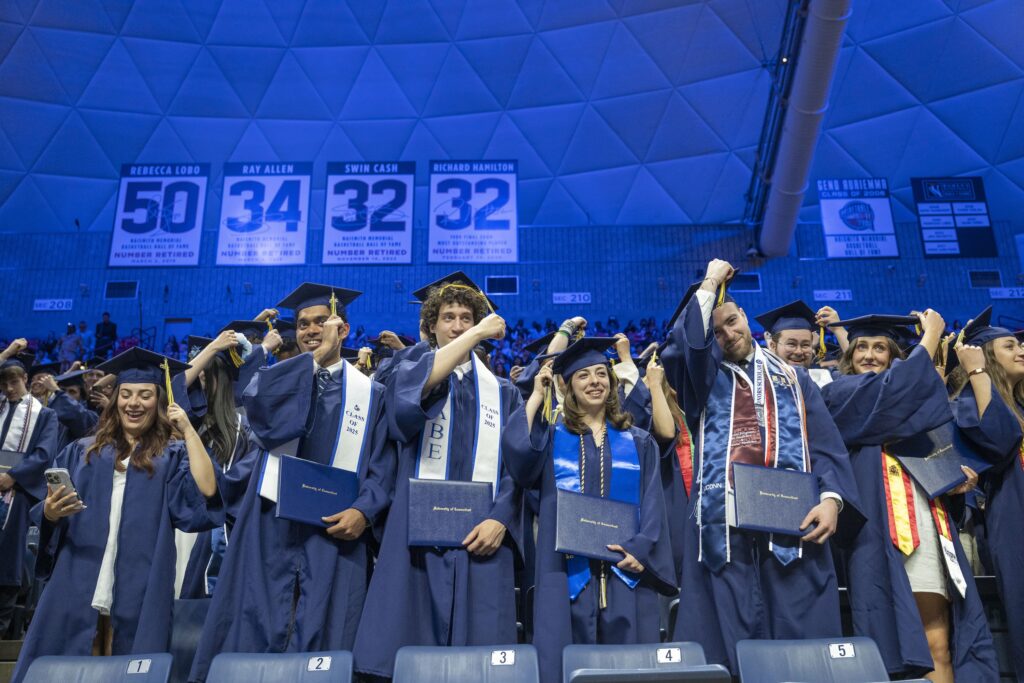By Kwasi Osei-Amankwah | UConn Journalism
May 9, 2025

Commencement season is here. This weekend, UConn will see more than 5,000 undergraduates and more than 2,000 graduate students receive their degrees.
But, amid cuts to the federal government and fears of a recession, many have questions about the economy they are heading into.
“It’s stressful,” said Angelika Garcia, who is about to graduate with their Bachelor’s in Music. “I want to be a music teacher, but with the government cutting the Department of Education, I’m getting even more scared because I feel that a lot of things I want to do will likely get cut. And with DEI being eliminated as well, it feels like I won’t be able to be seen.”
In the first four months of the Trump administration, data from the White House shows massive cuts to the Department of Health and Human Services, the Department of Education and the Department of Veterans Affairs among others. Cuts to the Environmental Protection Agency, as well as NIH and NSF grant making are disrupting scientific research.
Allison Wall is graduating with a BS in Natural Resources and Environment.
“I was considering going for a graduate degree, but I decided not to for mental health reasons,” she said. “Everything that’s going on with the economy and in my industry looks like it’s just going to be stripped and taken away. How could I not be stressed? You already know it’s going to be difficult to find a job out of college. Now? It feels impossible.”
By contrast, John Limjoco, a graduating economics major, has a solid plan for his post-college years, with a job in finance already lined up.
“I just try to stay focused on what I can control like doing good work, being curious, and staying flexible,” Limjoco said. “That mindset has helped me a lot so far, and I think it’ll keep me grounded going forward. I do think if some policies keep having negative effects on the finance industry, it may be a bit more difficult to move to different firms, which can be concerning looking down the line.”
Lisa M. Famularo, associate director at UConn’s Center for Career Readiness and Life Skills, said she has noticed some more concern among graduating seniors this year than in recent years, but she emphasizes that UConn students shouldn’t fear.
“Yes, students are coming in and are asking questions about what’s happening to the economy and what might happen to certain industries,” Famularo said. “If a student is not able to pursue their desired path, we as career coaches teach them about transferable skills.”
Transferable skills refer to the ability to apply the knowledge and experiences gained in one field to another industry. Famularo encouraged the Class of 2025 not to worry too much.
“Realistically, your first job after you graduate isn’t going to be your dream job,” she said. “Know that whatever job you get, work hard in that job, and make sure you continue to plan for the future.”
Data provided by Famularo shows that 92% of UConn graduates have reported a positive outcome since graduation, including holding full-time jobs, continuing their education, or following other pursuits of their choosing within six months after graduating. According to Famularo, the national average for college graduates is 85%.
“It’s impossible to predict the future,” Famularo said. “It’s good to be cautious about it, but you should never give up on your dream. UConn, as an institution, does a good job of preparing students for the job market. They have a very valuable degree to lean back on.”
